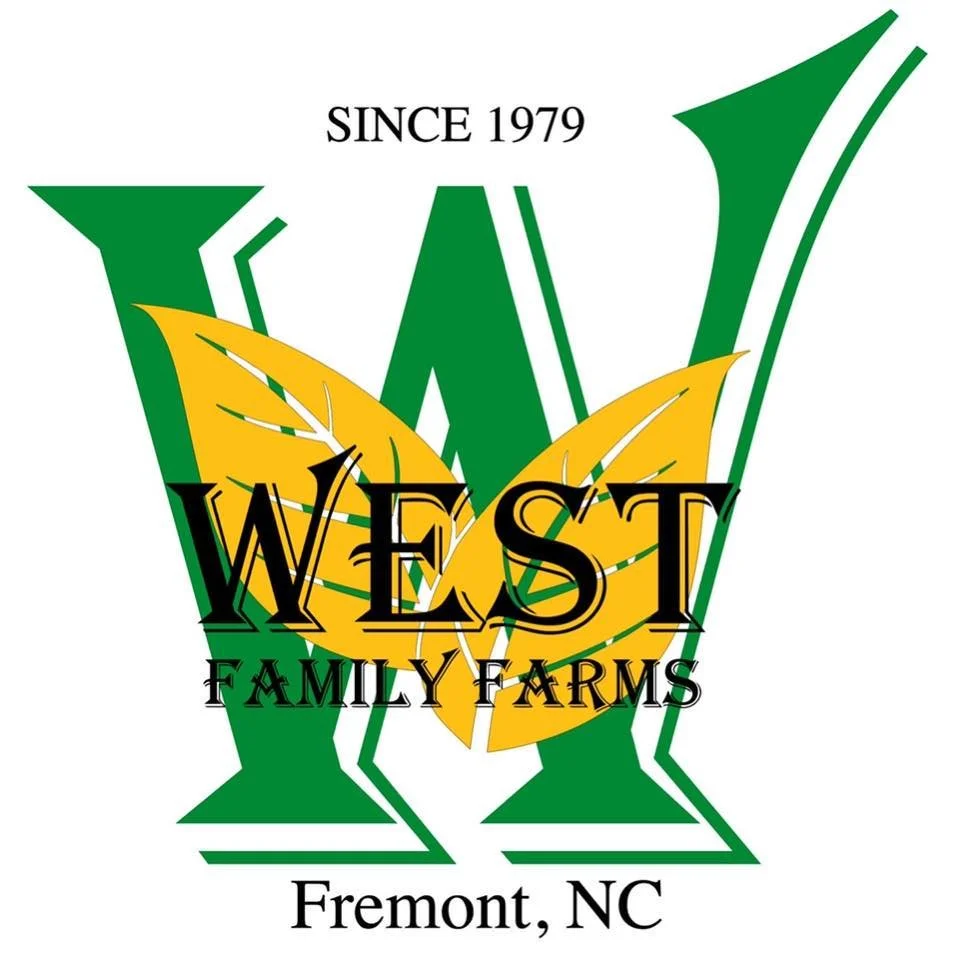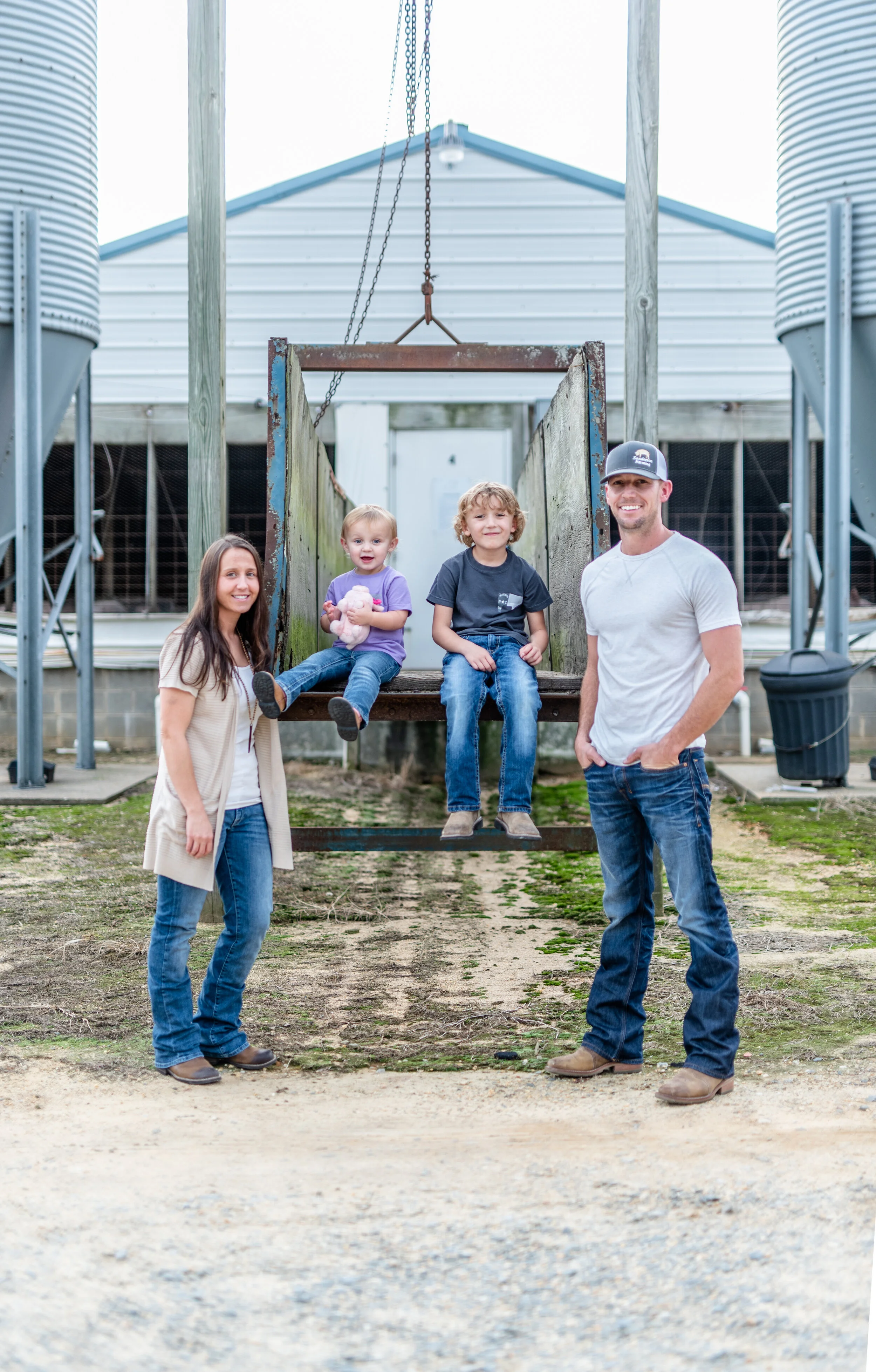Farmkeepers Blog
The Farmkeepers is the official blog of NC Farm Families. It is here that words will flow, our voice will be heard, a stand will be made, and the farm families of North Carolina will be protected. In these posts, we'll set the record straight. You'll see the faces of the families who feed us. Here, you'll receive all the updates and news. It is here that we will fight for farmers and be the keepers of the farm in NC. We hope you'll join us. Follow along on social media and by joining our email list.
Factory Farm Redefined
What is a factory farm?
A quick Google search of the term “factory farm” describes these farms as industrialized, intensive agriculture operations designed to maximize profits at the expense of the animals, environment, and public health.
Let’s work on redefining that.
In no way is it a factory. It’s a farm. Most likely, it is a family farm.
Is it larger than 50 years ago? Sure.
Does the size change what it is? Nope. Do words like “industrialized” or “intensive” change it? Again, no.
98% of all farms are family-owned and operated.
Those families are utilizing technology to be efficient and produce more with less.
Their efficiency and innovation has indeed been designed to maximize profits. After all, a farm is a business.
Let’s pause here for a second. Does the fact that a farm is a business change anything? Some would say it means farmers are motivated by profit, only caring about the bottom dollar. Here’s the thing—cutting corners and irresponsibly raising animals doesn’t mean more profit. It eats into your profits. Well-cared for animals and efficient facilities mean a higher quality product. Lowering your product’s worth is not profitable.
Back to efficiency and innovation. It has been designed to do more than maximize profits. It also maximizes resources. In fact, they are using less land, water, and energy to produce pork than ever before.
One way these “factory farms” have done this is to raise animals indoors. This allows them to use less while producing more. It also protects the animals from weather, disease, and predators. But does this protect the environment or public health?
Yes. By maximizing resources, they are being more sustainable. They are feeding more people with less resources (as has been previously mentioned). To raise the same number of animals on pasture would mean a lot more land, a lot less containment, and less control. Pasture isn’t bad. It has its place. Raising animals indoors isn’t bad either, though. It also has its place.
Farmers are maximizing profits through innovation and efficiency because of the animals, environment, and public health, not at the expense of.
Now that that’s settled, let’s amend the definition.
Factory Larger farms are (most likely) family-run industrialized, intensive agriculture operations designed to maximize profits, technology, and resources at the expense because of the animals, environment, and public health.
West Family Farm: Deep Community Roots
Lee West is the fourth generation to work on his family’s farm. Although, there’s been difficult times, the farm has grown. Through the years, they’ve never lost sight of their deep family and community roots.
Lee’s great-grandfather had a stroke when Lee’s grandfather, Jerry, was only 13. Most of the farm equipment was sold and the farm was rented out. When his grandfather became an adult, he worked in a local manufacturing plant while farming part time. When his manufacturing job told him he’d need to move out West, it was time for a change. Fremont was home, and that’s where he wanted to stay. So, in 1979, he started farming full-time. There were very few acres at the time and only 1-2 tractors. Today, the farm has grown to 6,000 acres where they grow many crops (read part 1 of the West’s story to learn what they grow).
While they’ve grown, their community and heritage are just as important as it was in the 60’s. Their growth wouldn’t be possible without the community.
Of the 6,000 acres they tend, the Wests rent 5,500 of those acres from landowners. Because the county is cut up so badly, they rent from more than 120 landowners. The agreement benefits both parties by providing income for landowners and land for the West’s crops. The Wests are focused on meeting the expectations of landowners. “Each one has their own concerns and how they want things treated,” says Lee. He adds that “you have to agree with your community and share the road.”
Northern Wayne County has been growing for the last 20 years. Lee says that his dad, Craig, talks about how used to you could drive a tractor 3-4 miles down the road before having to pull over for cars. Now they can hardly get out of their driveway. The Wests understand the importance of mutual respect and try hard to do their part in the community.
“Being a good neighbor and being a good person in the community, you hope that your community will work with you and allow you to get to your fields and grow your hogs,” Lee said.
For some, 6,000 acres may sound huge, and hardly a family farm, but Lee says that they are definitely a family farm. He, his dad, his uncle, and other family members are hands-on every day. When asked what it meant to be a family farm, Lee said, “It’s the pride. We all know what’s going on. We can tell you everyone’s name, their kids, and where they’re from. As progression progresses, we have had to tend more acres, buy more equipment, hire more workers, but I still like that smaller family farm mentality we have. We may not be as efficient as other farms, but we take pride in it and do the best we can.”
Lee also wishes that people understood that farming isn’t just about driving tractors. It’s a lot of business. The Wests have a farm office where Lee’s aunt, Lynn, and grandmother, Audrey, handles office reports, payrolls, taxes, and a host of other paperwork. That business is a big part of the local economy, benefiting many local businesses in the community.
For the Wests, business, farming, and the community are combined by taking the time to sit on various boards. In addition to local county groups, Craig is a board member of NC Sweetpotatoes and the Tobacco Growers Association while Brad sits on the board at NC Peanut Growers. Sitting on these boards allows these gentlemen to give not just a farmer’s perspective, but a resident of rural Wayne County. They are voices for and in their community.
Apart from being a good neighbor or business partner with those in the community, the Wests are also passionate about building relationships with their community. Many of those relationships are built over strawberries. In 2013, Lee’s aunt and uncle started a strawberry patch, and in 2019, Lee and his wife, Madison, took it over.
“My favorite part about strawberries is Saturdays. I get to see everybody from all over Wayne County. They bring their kids for the U-pick. Our customers come back week after week and year after year, and I think that’s the coolest part,” Madison said.
The effort is one of the heart, not necessarily for business.
“The strawberries are for the community more or less now,” Lee says. “The strawberries can be tough. They take a lot of time.”
Yet, you can find Madison in the strawberry barn on Saturdays during strawberry season, excited to see those in the community.
“They’ve become family to us too. Community is the biggest part of farming, to me,” Madison shares.
Lee & Madison at the Fremont Christmas Parade
Heart of the Matter: What is a Family Farm?
Recently, there have been discussions about what a family farm is. The answer seems simple: a farm run by a family. However, because farms don’t always look like they did 50 years ago, there has been some debate and confusion over what a family farm truly is.
We thought it important to address this topic. After all, our name is NC Farm Families. Shouldn’t we be able to provide clarity on who we represent? So here goes:
A family farm is one that has a family behind it.
It doesn’t matter how large the farm is.
It doesn’t matter if the farm is multi-generational or new.
It doesn’t matter if the family extends to farm employees.
It doesn’t matter if the family chose to contract with an integrator or are independently operated.
It doesn’t matter if there isn’t a red barn.
It doesn’t matter how many or what size the tractor is.
It doesn’t matter.
We do not constrain the term family farm to a certain size or type or the color of their barn. None of that matters.
What matters is that at the heart of family farms is a passion for the vocation, a love for family, and the fortitude to do hard work.
So, when we say that 96% of farms in the USA are family owned and operated, this is what we mean. They’re men and women raising families and feeding the world. They come in all shapes and sizes. Whether they have 10 acres or 1,000 or raise pigs indoors or on the ground, these things don’t define a family farm, their heart does.















